

Tyler Moore
gamer level 5
3329 xp
3329 xp
followers
8
8
Use my invite URL to register (this will give me kudos)
https://boardgaming.com/register/?invited_by=barelytoned
profile badges
...
...
...
...
recent achievements

Treasure Map
Explore select games by completing a series of exploration actions. learn more »
Explore select games by completing a series of exploration actions. learn more »

Followed my first game
Follow a game by clicking "Follow" on the game page
Follow a game by clicking "Follow" on the game page

Judge - Level 2
You be the judge! Demo 5 games at Gen Con. List of participating publishers »
You be the judge! Demo 5 games at Gen Con. List of participating publishers »

Explorer - Level 1
Earn Explorer XP to level up by completing Explorer Quests
Earn Explorer XP to level up by completing Explorer Quests
Player Stats
Critic (lvl 2)
485 xp
485 xp
Explorer (lvl 1)
170 xp
170 xp
Professor (lvl 1)
208 xp
208 xp
Reporter (lvl 1)
120 xp
120 xp
About Me
I'm a big fan of all games. I'm mentally drooling about getting to play Dune and I'm gung ho about getting a quick game of Forbidden Island in before dinner. I tend to love well-themed abstracts and games with medium to high production value, in addition to the in-betweeners and casual games that help to bridge the gap between plays of Puerto Rico and Agricola. I'm totally on the bandwagon for all these new deck building and dice building games, too. Quarriors is lots of fun and I hope to see the dice purchase mechanic used in games more often.
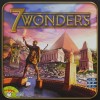



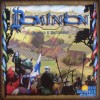







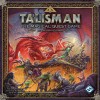


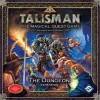
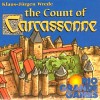


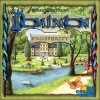

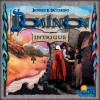
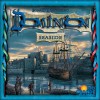

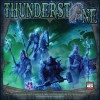
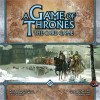

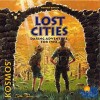














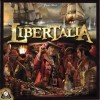
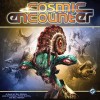




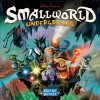

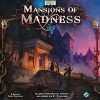


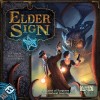
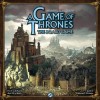
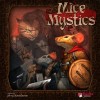
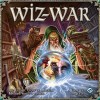
![Go to the Level 7 [escape] page Go to the Level 7 [escape] page](https://boardgaming.com/wp-content/uploads/2012/08/Level-7-escape-100x100.jpg)
Ascension
What is Ascension?
Ascension:Chronicle of the Godslayer is a deckbuilding game in the vein of Dominion. Each player takes an individual turn which consists of playing Heroes and Constructs from their hand to gain Runes (the money attribute used to buy new cards) and Power (the money attribute used to kill Monsters.) Cards are flipped from the Portal deck into a communal purchasing area. These cards can be Monsters which players can banish to the void for Honor (victory points), Heroes which players will gain into their decks to be played on future turns, and Constructs which the players will also gain, but once they are played they will remain in front of the player to provide a small bonus until they are forcibly discarded from play. Heroes and Constructs provide a certain amount of Honor as well. The cards themselves are full sized and wax coated for longevity (though some of my cards are improperly coated or lack coating at all, making them very easy to tell from the rest of the cards when shuffling and drawing.) The game also comes with a board which details the basic structure of the turn and provides a template for setting up the Portal deck, as well as the Cultist card (a basic monster any player can kill any number of times for a small Honor bonus), Heavy Militia, and Mystics. In addition to the cards and template board, the box includes a large number of honor “jewels”, small plastic irregular solids in either red or clear which represent the honor you gain from killing monsters and from certain heroes and constructs. The game ends when the predetermined number of jewels is dispensed. From there the players finish the round (so each player has had the same number of turns) and the game ends. Players then total their Honor provided from jewels and from cards in their deck and the player with the greatest Honor wins
What is Ascension not?
Ascension is not Dominion II. Ascension is not even a spiritual successor to Dominion, they have a very distinct feel to them. Ascension is not as tight strategically as Dominion, which some players may find a boon and others a bane.
How do I play?
Players shuffle the Portal deck and place it as well as the Cultist, Heavy Militia, and Mystics within easy reach. Each player assembles a deck of 10 cards consisting of 2 basic heroes, Militia and Apprentices. Like Dominion these are some of the worst cards to have in your deck and many strategies revolve around removing them as quickly as possible. After each deck is assembled and shuffled, each player draws 5 cards and the center row is populated with the top 6 cards from the Portal deck. Militia provide +1 Power and Apprentices provide +1 Runes. Since each player starts with a 5 card hand, there are two permutations of starting hands: +4 Runes/+1 Power on turn one and turn two or +3 Runes/+2 Power, then +5 Runes. Neither is distinctly better than the other inherently, unlike Dominion where a 2 copper/5 copper split can really hurt the early game (or unreasonably help it.) A turn consists of buying cards with Runes and banishing monsters with Power in any order the player chooses. During his turn, any cards purchased from the center row will leave an open slot which will be immediately filled with a random card from the Portal deck. If a player has more Runes and Power left to use, he could then purchase/kill that card and see another. After the player has spent all his available Runes and Power, he discards any Heroes he has played, as well as any cards left in his hand and draws a new 5 card hand. Any Constructs the player has played will remain on the table for subsequent turns. Then the next player takes a turn. The game ends when all the Honor jewels have been claimed.
How do I win?
In the base set there seem to be two main strategies that I’ve found to work well. The first is my favorite, but is heavily dependent on luck in the early game. If you can quickly buy cards which allow you to banish cards in your deck (known as “Trashing” in Dominion), you can get an early advantage over your opponents which you can then extend by purchasing cards which give you card advantage through drawing or more banishing. I’ve seen someone get 101 Honor in a three player game using this strategy, when most games that I’ve played are won by a player that has 60-80 Honor by the end of the game. If you can’t seem to purchase cards that allow you to banish cards in your deck, a focus on Power also seems to work well. I imagine that it is more effective because it can allow you to short circuit the game since the Honor gained from killing Monsters comes from the jewel pool and will bring the game to its end more quickly. And, since you aren’t buying as many cards, your deck remains very small and focused (just like the deck from strategy one). Hybrid approaches work less well (unless luck is on your side.) This game seems complex at first, then simple, and now I’m diagraming it like I would any other CCG. I see this one eventually losing replayability, but I’ll definitely get my money’s worth out of it before then.
A Simple Review
Ascension is a deckbuilding game that plays up to four players and is very quick to set up (much quicker than Dominion), and very quick to play. It avoids analysis paralysis in most situations by limiting the decisions a player has to make in a given turn. Since a player only has access to, at most, 9 unique cards at any one time it’s easy to find the optimal expense of Runes and Power in a given situation. The game is strategically simple and requires on-the-fly decision making. Replayability is pretty good, but I can see the game getting pulled out less and less over the years. Expansions help a little, but the randomized Portal deck means that you’ll be seeing the old cards and the new at the same time, so it could be annoying in a certain light. The art is amazing (and definitely my favorite part of the game.) It’s thematic and very well done. The components themselves are produced to a high standard, but I did have a problem with the coating on a number of my cards (maybe 10% of the whole, mainly the apprentice and militia cards.)
I give Ascension an 8.